Bangladesh Election: Economy at Risk as Hasina Wins
Bangladesh's economy faces a fragile future as Sheikh Hasina secures a fourth term, raising concerns about debt, sanctions, and political instability.
Kuala Lumpur, Jan 4 (360info) Bangladesh, one of Asia's most promising cases of growth under democracy, will head to the polls on 7 January.
The country has become a test case for electoral democracy, with the election marked by descriptions of being "staged" and a "farce" even before the actual voting begins.
With tens of thousands of opposition leaders and activists arrested in a crackdown ahead of the election, Sheikh Hasina leader of the Awami League political party is all set to serve as Bangladesh's Prime Minister for the fourth consecutive time.
Bangladesh already has a long legacy of election controversies.
Two consecutive rigged national elections since 2014 have been sustained by a hidden alliance of power elites that cuts across all key institutions civil and military bureaucracy as well as the judiciary and business elites.
Each of these key power groups has become highly partisan and stands to benefit from political continuity.
In the aftermath of the last election in 2018, the Bangladesh Nationalist Party waited out Sheikh Hasina's new government, hoping they would bring about their own downfall as cronies crippled financial and other market-enabling institutions, pushing the economy on the edge.
Despite decades of sustained GDP growth and improvements in social indicators, Bangladesh's economy is now on a fragile footing.
The incumbent government faces a moderate risk of running out of reserves.
A series of negotiated loans from international financial institutions such as the World Bank, International Monetary Fund, and the Asian Development Bank recently helped avoid a Sri Lanka-like fate. Despite those multilateral concessional loans, Bangladesh's financial crisis is not over; the structural fault lines remain clear.
The International Monetary Fund has expressed concerns over risks of capital flight. In September 2023, the US government also intensified external pressure by issuing a visa embargo on those engaged in suppressing opposition and labour leaders.
Further foreign sanctions could lead to costly fallouts. In 2013, the US government punished Bangladesh for its failure to protect worker rights by leaving it out of the generalised system of preference list of countries.
This subsequently hurt Bangladesh's export diversification efforts. That legacy remains: Bangladesh's sole reliance on readymade garments exports leaves it extremely vulnerable to external shocks.
The gravity of new sanctions must not be ignored especially considering that Bangladesh's economy is at a crossroads.
As the country is set to graduate out of Least Developed Country status, it will lose the duty-free benefits under preferential tariffs.
At the same time, it has to phase out the existing export subsidies for readymade garment factory owners while reducing protection afforded to import-substituting businesses.
The latter is owing to unusually high nominal tariffs on the import of raw materials. This means a potential double negative shock to export earnings and import duty revenue.
With every branch of the government already deeply politicised and led by individuals loyal to the prime minister, there is little political accountability left. Another sham election will further weaken bureaucracy, judiciary and financial institutions. All these also will mean reduced state capacity.
On the domestic front, the unholy alliance with oligarchs will further constrain the government's ability to implement tariff and subsidy reform as well as restore fiscal discipline.
As the repayment schedule for many of the costly loans to finance controversial mega projects begins, the tax-to-GDP ratio will need to increase while local banks need to recover bad loans. Fighting tax evasion and bringing loan defaulters to book will only become harder.
On the external front, the risk of external debt distress remains low given the high share of concessional loans. Yet prominent Bangladeshi think tank Centre for Policy Dialogue warns that Bangladesh's external debt situation may soon slip into the yellow zone in 2024-2025.
According to one projection, the debt-to-GDP ratio will cross the 100 percent mark in 2024. By lowering export receipts, a trade sanction may further add to popular concerns over debt sustainability.
Other related risks involve increase in speculative behaviour by foreign traders in anticipation of further depreciation of Bangladeshi currency. This may worsen the ongoing dollar crisis.
Ultimately, another election without choice in Bangladesh is likely to come at a hefty cost. What some had hoped would be Asia's next tiger economy may be soon heading for a deeper economic crisis, reversing years of gains.
After 15 years of continuous rule by Awami League, Bangladesh's culture of election engineering has coincided with cronyism and institutionalised corruption.
Most worryingly, this has polarised Bangladeshi society and weakened all key institutions including the parliament.
With the enduring absence of a credible opposition party, a free press and an independent judiciary, prospects of economic recovery from further shocks look grim as critical reforms will become increasingly challenging.
It will be something of a miracle if Bangladesh's economy continues to thrive within a democratic autocracy without experiencing a major social and economic collapse by 2025. (360info.org)
The country has become a test case for electoral democracy, with the election marked by descriptions of being "staged" and a "farce" even before the actual voting begins.
With tens of thousands of opposition leaders and activists arrested in a crackdown ahead of the election, Sheikh Hasina leader of the Awami League political party is all set to serve as Bangladesh's Prime Minister for the fourth consecutive time.
Bangladesh already has a long legacy of election controversies.
Two consecutive rigged national elections since 2014 have been sustained by a hidden alliance of power elites that cuts across all key institutions civil and military bureaucracy as well as the judiciary and business elites.
Each of these key power groups has become highly partisan and stands to benefit from political continuity.
In the aftermath of the last election in 2018, the Bangladesh Nationalist Party waited out Sheikh Hasina's new government, hoping they would bring about their own downfall as cronies crippled financial and other market-enabling institutions, pushing the economy on the edge.
Despite decades of sustained GDP growth and improvements in social indicators, Bangladesh's economy is now on a fragile footing.
The incumbent government faces a moderate risk of running out of reserves.
A series of negotiated loans from international financial institutions such as the World Bank, International Monetary Fund, and the Asian Development Bank recently helped avoid a Sri Lanka-like fate. Despite those multilateral concessional loans, Bangladesh's financial crisis is not over; the structural fault lines remain clear.
The International Monetary Fund has expressed concerns over risks of capital flight. In September 2023, the US government also intensified external pressure by issuing a visa embargo on those engaged in suppressing opposition and labour leaders.
Further foreign sanctions could lead to costly fallouts. In 2013, the US government punished Bangladesh for its failure to protect worker rights by leaving it out of the generalised system of preference list of countries.
This subsequently hurt Bangladesh's export diversification efforts. That legacy remains: Bangladesh's sole reliance on readymade garments exports leaves it extremely vulnerable to external shocks.
The gravity of new sanctions must not be ignored especially considering that Bangladesh's economy is at a crossroads.
As the country is set to graduate out of Least Developed Country status, it will lose the duty-free benefits under preferential tariffs.
At the same time, it has to phase out the existing export subsidies for readymade garment factory owners while reducing protection afforded to import-substituting businesses.
The latter is owing to unusually high nominal tariffs on the import of raw materials. This means a potential double negative shock to export earnings and import duty revenue.
With every branch of the government already deeply politicised and led by individuals loyal to the prime minister, there is little political accountability left. Another sham election will further weaken bureaucracy, judiciary and financial institutions. All these also will mean reduced state capacity.
On the domestic front, the unholy alliance with oligarchs will further constrain the government's ability to implement tariff and subsidy reform as well as restore fiscal discipline.
As the repayment schedule for many of the costly loans to finance controversial mega projects begins, the tax-to-GDP ratio will need to increase while local banks need to recover bad loans. Fighting tax evasion and bringing loan defaulters to book will only become harder.
On the external front, the risk of external debt distress remains low given the high share of concessional loans. Yet prominent Bangladeshi think tank Centre for Policy Dialogue warns that Bangladesh's external debt situation may soon slip into the yellow zone in 2024-2025.
According to one projection, the debt-to-GDP ratio will cross the 100 percent mark in 2024. By lowering export receipts, a trade sanction may further add to popular concerns over debt sustainability.
Other related risks involve increase in speculative behaviour by foreign traders in anticipation of further depreciation of Bangladeshi currency. This may worsen the ongoing dollar crisis.
Ultimately, another election without choice in Bangladesh is likely to come at a hefty cost. What some had hoped would be Asia's next tiger economy may be soon heading for a deeper economic crisis, reversing years of gains.
After 15 years of continuous rule by Awami League, Bangladesh's culture of election engineering has coincided with cronyism and institutionalised corruption.
Most worryingly, this has polarised Bangladeshi society and weakened all key institutions including the parliament.
With the enduring absence of a credible opposition party, a free press and an independent judiciary, prospects of economic recovery from further shocks look grim as critical reforms will become increasingly challenging.
It will be something of a miracle if Bangladesh's economy continues to thrive within a democratic autocracy without experiencing a major social and economic collapse by 2025. (360info.org)
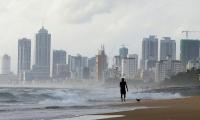

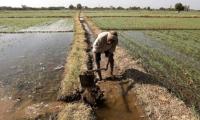
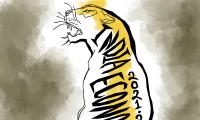
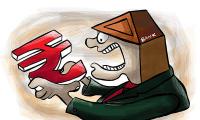
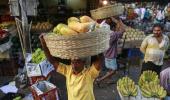

 © 2025 Rediff.com India Limited. All rights reserved.
© 2025 Rediff.com India Limited. All rights reserved.